Oscar Wilde Would Have Twittered
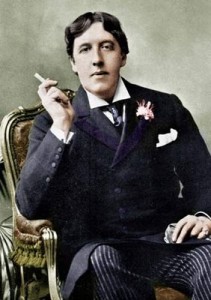
The riveting conclusion to our 2.5-part series.
In our first installment twittering poets wrote about the impact of social networking on their craft. One commenter wrote of the post: “It makes me feel like throwing up…I don’t even know what Twitter is, and I don’t want to know. Sounds like stupid shit. I came here to read about Richard Hugo.”
Self-loathing was imminent. And yet we soldiered on…
In installment 1.5 Brandon ‘Scott’ Gorrell expounded on the techniques of various twittering writers he admires and read the tea leaves of my Twitter style as well (‘confused,’ ‘tired’). He also addressed the proliferation of ‘scare quotes’ and took what may be his first public step in becoming a more streamlined ‘Brandon [no Scott] Gorrell.’
Now, for the eye-popping finale, we go the way of so many poets and move on to prose. Below, some of the liveliest twittering prose writers of our generation send this baby home!
Blake Butler: I use twitter to help me remember jacked up crap that happens daily, since usually I’m too lazy to scribble it down. Seeing a dude who looks exactly like Captain Beefheart making a mess trying to pour himself an Icee at the QT, or realizing how eating Cheerios and then pickles tastes like that Whopper, those are things that would probably go away if I didn’t poot them into the online. So there’s that impact, on memory, and in figuring out how to nail those moments in a handful of characters, and watching others do the same. It’s a good little casebook of what pops.
Elyssa East: Sometimes I feel like character count is my new word count thanks to Twitter, but really it’s the once lowly pound or numerical sign, known to the Twitterati as the hash tag—#—that has changed my writing and my life. Now, at 4:20 every day, from coast to coast, people roll a big fat doobie around some inane subject and fire up what’s really on America’s mind. Like this top trending topic from February:
#Tiger #Tiger #BurningBright.
#WithSomeHoInTheNight,
#WhatMortalTitOrAss,
#CouldFrameThyPowerfulCelebrity?
A masterpiece! Why fool with writing windbag long form nonfiction prose when the poetry of every day life now writes itself? So yes, I do dip my toe in this great stream of America’s consciousness and sometimes let it carry me downriver from my work, but it’s an interesting ride through what is essentially a giant archive of thoughts, words, and deeds in the making. So #LetsBeReal (trending on March 4th, 2010), whether you’re in the swim or watching from the shore, Twitter, like your writing, is what you make of it via discipline and your ability to see the thing itself and what it actually means.
Matthew Simmons: Twitter is either exercising my ability to write under constraint or giving me an excuse to not finish whatever I should be working on. History will judge.
Dara Horn: For authors, the shallowness of Twitter provides one major overlooked asset: 140 characters is simply too short for readers to say anything truly nasty about your book. Authors are now accustomed to long anonymous online screeds detailing their artistic failures, often conveniently posted at the point of sale. But when I need narcissistic encouragement, I can’t go wrong with Twitter– a wonderful parallel universe where someone named Katie is always cheerfully, innocently telling the world that she is on page 164 of “All Other Nights.” Page 164 was always my favorite page, Katie. You tell it like it is.
Kevin Sampsell: I find Twitter to be a little constraining as far as interaction and communication goes. I prefer Facebook and find that it’s better for a more organized discussion. It’s much easier to follow. But what if someone on Twitter writes that they got a story published in the New Yorker and then an three hours later tweets about their dog getting hit by a car. If I only see the New Yorker tweet and respond by saying, “That’s great!” then it seems like I’m writing about their dog. I don’t know. I just wish it was somehow more streamlined. Mostly, I use Twitter to post links to stuff and talk about stuff I like.
Megan Boyle: Twitter has had maybe a neutral-positive effect on my writing. I think I view Twitter as any other medium where I write things that people read. With any kind of creative output, for me, comes a lot of anxious/analytic/self-monitoring thought activity, which isn’t really pleasant, but for whatever reason, it isn’t unpleasant enough for me to give up. I feel bad when people stop following me. I view Twitter as sort of a video game where the goal is to cultivate/keep as many followers as possible. Bonus points are gained from @ replies and re-tweets. The goal is achieved by creating tweets which are original yet stylistically consistent with other things I’ve written. So, a sort of boring video game with minimal graphics that makes me feel bad sometimes, I guess.
Justin Taylor: [Facebook yes. Twitter no.] Twitter seems useful as an information-sharing mechanism, and perhaps as a marketing tool. I also know a lot of people who enjoy it, but I have no hands-on experience with the, uh, medium. But when I’m writing I am not doing anything–anything–else. Twitter might as well be a TV that isn’t on, an email I’m not answering (or even seeing, because I’m not logged in), a friend I’m not out drinking with, or a movie I’m not at. You know what I mean? So it might be very cool–and it might eat up bits or bundles of my free time if I ever tried it and liked it, but it wouldn’t cut into my writing time at all.
John Wray: I welcome any new format for my experiments in Total Procrastination, and Twitter is an important tool in this work. Soon I will begin to procrastinate writing tweets, at which point I plan to spontaneously combust.
Tracy McMillan: For a while, I twittered a lot — or tried to. The problem was, it began to feel like a chore. I had to think up things to tweet about, and that proved challenging. For one thing, there’s the form. One hundred forty characters often feels limiting, and I have a personal rule against text abbreviations — ‘U’ for you, ‘C’ for see, etc. — I think they’re the day-shift strippers of the English language. Then there’s the content. I noticed I most wanted to tweet about trips to Ikea or watching American Idol — things the masses do. Further, because I’m a writer, I found myself “composing” tweets, writing several drafts before posting them. Eventually, I couldn’t take it any more. I just… stopped. Now I feel guilty about it. So despite all this, I plan to go back to twitter. Probably starting tomorrow.
Todd Zuniga: I’m becoming more and more outraged by email, by myriad distractions of tech. I use Twitter, because it’s made running Opium and the Literary Death Match much more breeze-like, but in terms of my fiction writing, I think it’s had little impact. I’d like for it to be an outlet, an interesting place for literary musings and ideas, but I tried that once before with eatpizzaintheshower.com, an experiment I hoped would last a full year, but lasted four months because it was cannibalizing my fiction. So, I guess I’m not using Twitter in that way, because I’m learning from the past.
Julie Buxbaum: I don’t think my habitual tweeting has affected my novel-writing. I mean, sure, I now use “u” instead of “you”, have added the @ sign to my professional signature, and my third book is only going to be 140 characters long, but I am pretty confident that was the artistic direction my work was going in anyway.
Fiona Maazel: Twitter? What the hell is that? I, Neanderthal.
Joseph Riippi: [at press time, Riippi is about to take his first tweet] Twitter proves how much language and relations are constantly changing. Which is a good thing, I think—language should be fresh. It’s why we write, right? But Sontag reminds us that “anything in history or nature that can be described as changing steadily can be seen as heading toward catastrophe.” Entropy and all that. All my writing already seems headed for catastrophe—so joining Twitter terrifies me.


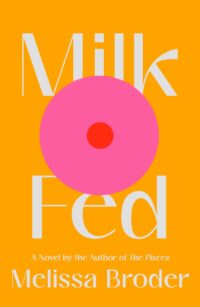
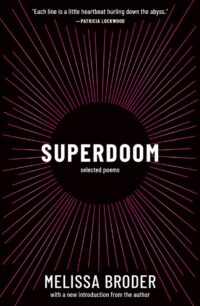
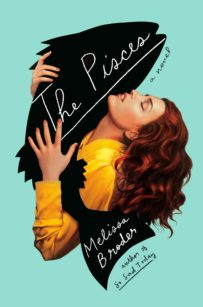
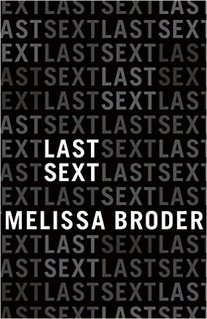
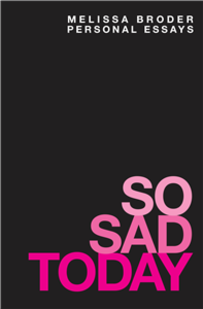
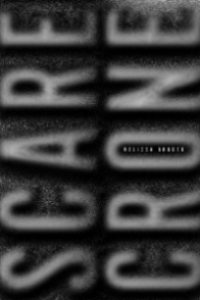
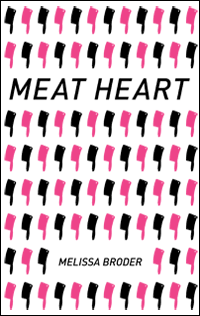

[…] “Something About Twitter” Jump to Comments The bard-ly Melissa Broder (When You Say One Thing But Mean Your Mother) asked a bunch of folks to participate in a massive post about Twittering and Tweeting and its effects on fiction (this a follow-up to the one with poets). Myself and people more famous than myself had some thoughts. Check them all out here. […]
[…] Part two of Melissa Broder’s two-part series on twitter as a strange attractor in the writer’s life is now live. In Part 1 she spoke to poets, including Ron Silliman, Amy King, Tao Lin, and Reb Livingston. In Part 1.5 she spoke at some length with Brandon Scott Gorell. Now, in Part 2, she speaks to prose-writers, Kevin Sampsell, Dara Horn, Fiona Maazel, our own Blake Butler and Matthew Simmons, and yours truly. Fiona Maazel: Twitter? What the hell is that? I, Neanderthal. […]
what’s twitter?
[…] Oscar Wilde Would Have Twittered […]